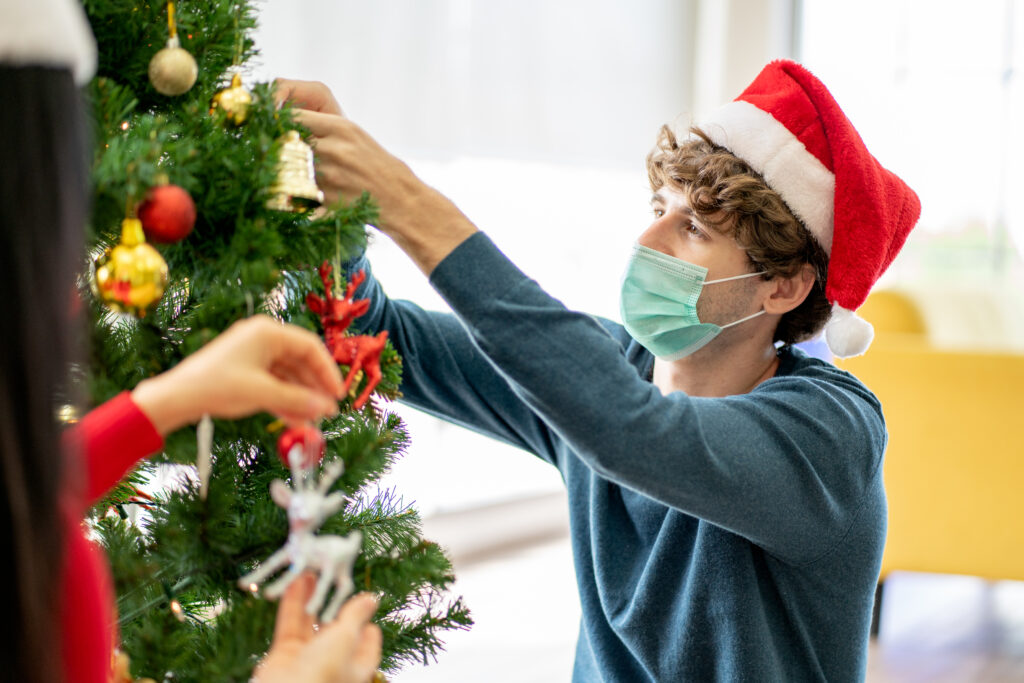By Dr. Angelique Jenney, Wood’s Homes Research Chair in Children’s Mental Health.
Trust is a fundamental part of healthy development, beginning essentially from birth and is an aspect of relationships that we all manage regularly.
(A good article on the important life stages of trust is here.)
Trust has long been tied up in faith and tradition, something the holidays are very much steeped in.
As the latest variant Omicron looms large over our festive season, we are all facing difficult decisions about trust and about social gatherings, which is heavily layered in conversations about vaccination. Don’t worry, this isn’t a blog about getting vaccinated, but rather one that looks at the complicated relationships we have with our friends, family and ultimately news sources and government about who or what we trust when it comes to our safety.
(In a fascinating Q & A article, leading experts talk about vaccination hesitancy and how this has been created. Read it here.) The article basically speaks to the lack of trust in information we are getting about COVID, as well as those who deliver the message.
Recently I’ve been thinking a lot about the children who are growing up in this environment.
We know that poor mental health is on the rise and we are often focused on the impacts of social isolation and disrupted work and school patterns as the culprit. But I’ve been thinking about trust and how this is a key component of feelings of safety. What does it mean to be a child growing up in an environment where they or the people around them don’t know who or what to trust anymore?
We know what happens to children who grow up in abusive environments or in wartime. But what do we know about children who grow up wondering if the society they live in really values them or their parents? Children who fall on one of the polarized sides of vaccination will find themselves forced to choose who they can trust – or more importantly, depending on their age, they might not have a choice at all. In moments like these, we have to stay focused on what we can do when trust is eroding.
The experts say we need to stay connected to each other – to keep talking, keep communicating, to find a place in our corner of the world that rebalances the instability of our current times.
The holidays can be a difficult time for many, and COVID restrictions only add to the stress. In moments like this we need to try to trust our feelings and the process of the journey we are all on during this pandemic. We can also think about the ways that we can help those we love learn to trust and feel a little bit safer by doing things that maintain connections:
- Maintain traditions from a distance: Maybe Grandma and Grandpa can’t be at Christmas dinner again this year, but perhaps Grandma’s sugar cookies can still make an appearance?
- Start something new: Last year, when we couldn’t all be together, we went carolling to our loved ones’ houses – it was safe (outside of the risk of bad singing) and we got to see each other and let people know they were still very much in our hearts (even without the hugs!)
- Find the silver linings when you can: Talk about those disappointments, but leave room for some small upsides (e.g. We are going to have a LOT of Christmas leftovers! Or maybe you get to keep the awesome Secret Santa gift you picked up? Or that gift you ordered too late? Well, it’s going to be right on time for next year!).
And even when it feels like we can no longer trust in ‘next year’, when it comes to finding ways to let people know they are loved and cared about, even from a distance – we can all trust in humanity for that.
If you or someone you know needs to talk, please reach out to Wood’s Homes at 403-299-9699 or text to: 587-315-5000. We are here to listen and to help.




